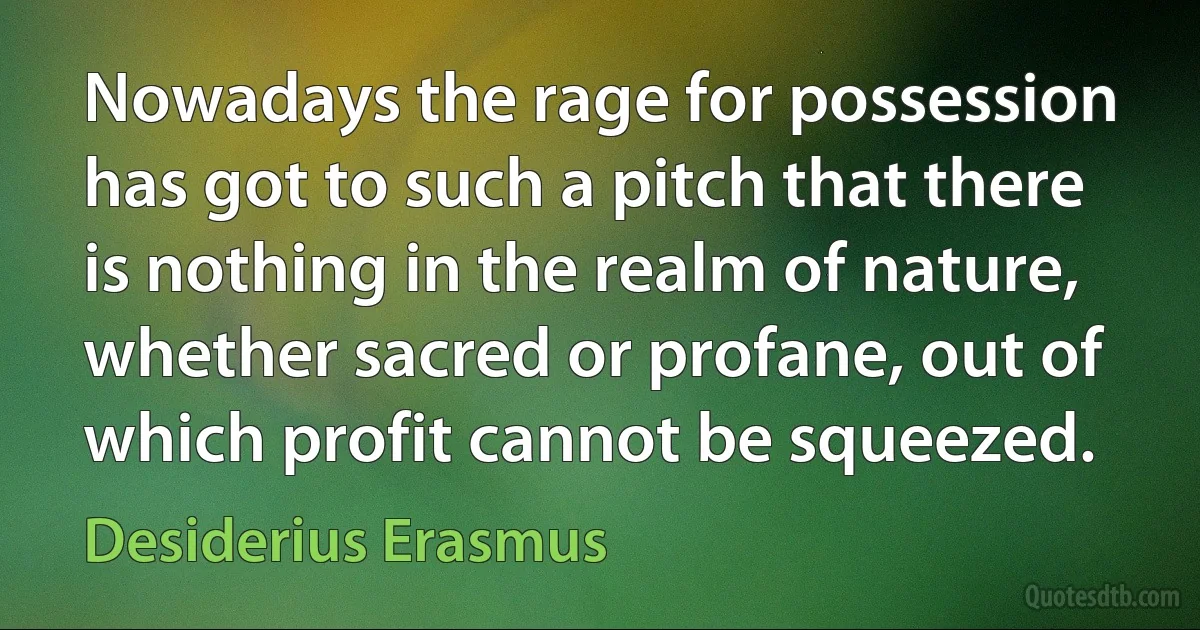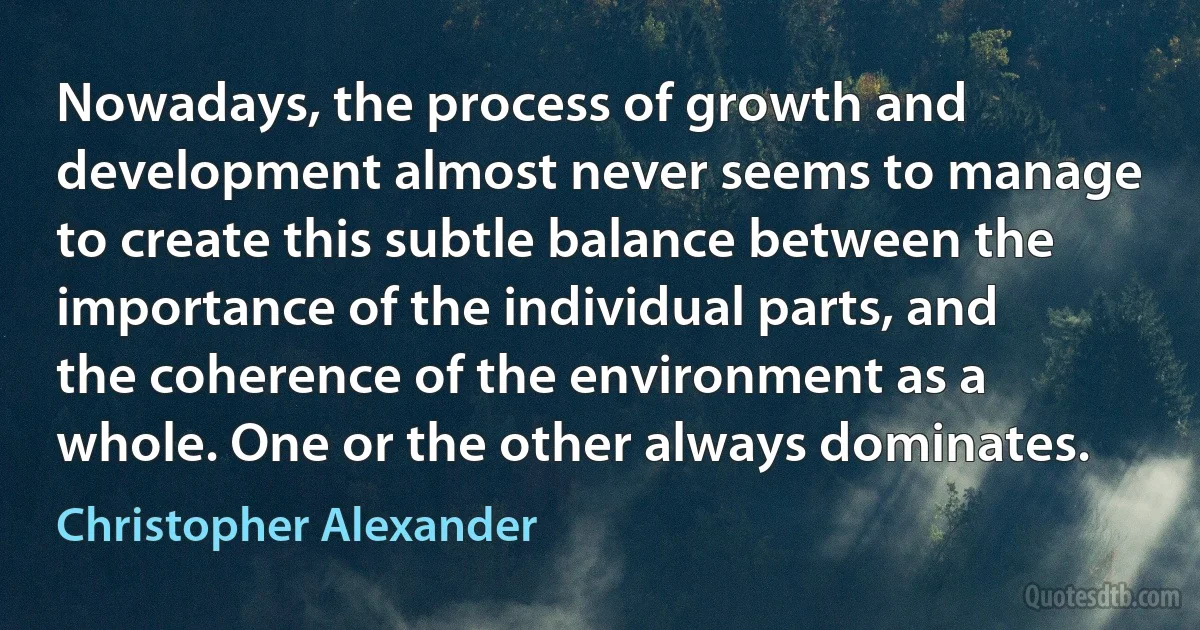Nowadays Quotes - page 9
I suppose nowadays it's all a question of surgery, isn't it? Of course the notion is beautiful, the idea of staying a boy and a child forever, and I think you can. I have known plenty of people who, in their later years, had the energy of children and the kind of curiosity and fascination with things like little children. I think we can keep that, and I think it's important to keep that part of staying young. But I also think it's great fun growing old.

Johnny Depp
We need to tell citizens what Europe is, it is not all about angels and demons. It is a reality which have helped us in numerous ways – and still helps us. I think about peace, a thing we now undervalue but which has a primary importance. Let's think about fYROM, for instance. Nowadays, those countries, former enemies, are entering the Union or are already Member States. Then, the freedom of movement, the rights for consumers.

Federica Mogherini
You know, people come in here with their fucking camera phones - everything's a camera nowadays; you pick up a piece of fruit, it takes a picture of you. Or the computers which are everywhere which is proof that we like to be watched. That what we've replaced God with, technology! We're fucking afraid to be alone, in a lift, in a taxi cab, we need cameras everywhere recording us unless we realise we're alone, we might do something scary... like whimper, I don't know!

Dylan Moran
In chess so much depends on opening theory, so the champions before the last century did not know as much as I do and other players do about opening theory. So if you just brought them back from the dead they wouldn't do well. They'd get bad openings. You cannot compare the playing strength, you can only talk about natural ability. Memorization is enormously powerful. Some kid of fourteen today, or even younger, could get an opening advantage against Capablanca, and especially against the players of the previous century, like Morphy and Steinitz. Maybe they would still be able to outplay the young kid of today. Or maybe not, because nowadays when you get the opening advantage not only do you get the opening advantage, you know how to play, they have so many examples of what to do from this position. It is really deadly, and that is why I don't like chess any more.

Bobby Fischer
We are living in 1937, and our universities, I suggest, are not half-way out of the fifteenth century. We have made hardly any changes in our conception of university organization, education, graduation, for a century - for several centuries. The three or four years' course of lectures, the bachelor who knows some, the master who knows most, the doctor who knows all, are ideas that have come down unimpaired from the Middle Ages. Nowadays no one should end his learning while he lives and these university degrees are preposterous. It is true that we have multiplied universities greatly in the past hundred years, but we seem to have multiplied them altogether too much upon the old pattern.. [A] new university is just another imitation of all the old universities that have ever been. Educationally we are still for all practical purposes in the coach and horse and galley stage.

H. G. Wells
There's a lot of great writing, and characters, and stories being told in television nowadays. And much more than there used to be. The opportunities to tell stories, because of the opportunities to show content. And so it's drawing actors from cinema, movie actors, actors to where there's a lot of opportunities to where you can tell stories.

Keanu Reeves
It's not very fashionable nowadays to have a philosophy that demands a lot of life. I tend to be drawn to people who are emotional - now they'd be called 'crazy'. Pollock, Jasper Johns, Toulouse-Lautrec. People said, 'They're off their nut!' Was Faulkner off his nut because he stayed in his house for eight months at a time writing books, and then you'd find him drunk up in a tree, making out with some old black woman? I think that's fuckin' great!

Ryan Adams
It does seem so pleasant to talk with an old acquaintance who knows what you know. I see so many new folks nowadays who seem to have neither past nor future. Conversation has got to have some root in the past, or else you have got to explain every remark you make, and it wears a person out.

Sarah Orne Jewett
Historically, Marxism was born with the ambition of explaining everything in the world scientifically. It is known, that Marx even dealt with mathematics. Although he could not solve problems which are nowadays clear for even asinine pupils, Marx left behind for the future generations his smart tips.

Aleksandr Zinovyev
...the most serious charges are made nowadays, not against the religious values of the Old Testament, but against its ethical values.... the Sacred Scriptures of the Old Testament, which all Christians, of whatever denomination, treat with reverence, are spoken of in blasphemous terms which may not be repeated in this holy place.

Michael von Faulhaber
The actual expense of your colleges appears to have been very low, and would have been far lower if their patronage had been greater. The higher education nowadays is as cheap as the lower, as all grades of teachers, like all other workers, receive the same support. We have simply added to the common school system of compulsory education, in vogue in Massachusetts a hundred years ago, a half dozen higher grades, carrying the youth to the age of twenty-one and giving him what you used to call the education of a gentleman, instead of turning him loose at fourteen or fifteen with no mental equipment beyond reading, writing, and the multiplication table.

Edward Bellamy
You will see...many very important differences between our methods of education and yours, but the main difference is that nowadays all persons equally have those opportunities of higher education which in your day only an infinitesimal portion of the population enjoyed. We should think we had gained nothing worth speaking of, in equalizing the physical comfort of men, without this educational equality....

Edward Bellamy
The organization of society with you was such that officials were under a constant temptation to misuse their power for the private profit of themselves or others. Under such circumstances it seems almost strange that you dared entrust them with any of your affairs. Nowadays, on the contrary, society is so constituted that there is absolutely no way in which an official, however ill-disposed, could possibly make any profit for himself or any one else by a misuse of his power. Let him be as bad an official as you please, he cannot be a corrupt one. There is no motive to be. The social system no longer offers a premium on dishonesty.

Edward Bellamy
The cities of that period were rather shabby affairs. If you had the taste to make them splendid, which I would not be so rude as to question, the general poverty resulting from your extraordinary industrial system would not have given you the means. Moreover, the excessive individualism which then prevailed was inconsistent with much public spirit. What little wealth you had seems almost wholly to have been lavished in private luxury. Nowadays, on the contrary, there is no destination of the surplus wealth so popular as the adornment of the city, which all enjoy in equal degree.

Edward Bellamy



